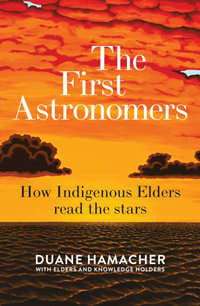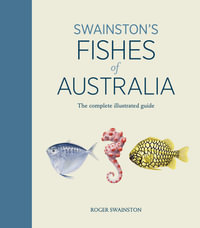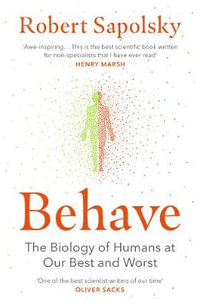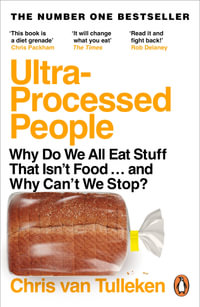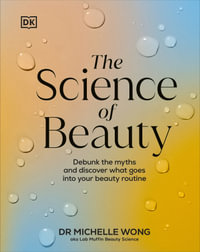
At a Glance
Hardcover
$52.25
Aims to ship in 15 to 25 business days
When will this arrive by?
Enter delivery postcode to estimate
In Making Eden David Beerling reveals the hidden history of Earth's sun-shot greenery, and considers its future prospects as we farm the planet to feed the world. Describing the early plant pioneers and their close, symbiotic relationship with fungi, he examines the central role plants play in both ecosystems and the regulation of climate. As threats to plant biodiversity mount today, Beerling discusses the resultant implications for food security and climate change, and how these can be avoided. Drawing on the latest exciting scientific findings, including Beerling's own field work in the UK, North America, and New Zealand, and his experimental research programmes over the past decade, this is an exciting new take on how plants greened the continents.
Industry Reviews
Few authors have attempted a summary of early plant evolution for a general audience... Beerling is a fount of information. * Jason Fridley, Syracuse University, The Quarterly Review of Biology *
Scholarly, highly readable and passionate account ... This book is a call-to-arms: cutting-edge plant science in an environmental context. * Phil Gates, BBC Wildlife *
[A] wonderful study ... A vivid corrective to deep-rooted zoo-chauvinism in thinking about life on Earth. * Barbara Kiser, Nature *
David Beerling demonstrates his proficiency in all things green by exploring facets of the colonisation of land by plants in times long past. * Daniel Bojar, The Biologist *
Subtitled 'how plants transformed a barren planet' this fascinating book describes the rise and diversification of plant life originating in a certain type of algae and gradually colonising the land, leading eventually to large forests that impacted the climate through feedback mechanisms. * Paradigm Explorer *
Relatively complex subjects within the field of planet genetics are presented in detail, yet in an accessible writing style that should appeal to non-specialists... Thoroughly researched, content-heavy, and scattered with anecdotes and examples from Beerling's own career ... an informative and highly relevant read. * David Vaughan, Geoscientist *
Making Eden is an amazing story that is very well told by David Beerling. It should be on the reading list of every course in plant biology. It should also be essential reading for all those in positions of influence regarding current and future agriculture and environmental policies. * Nigel Chaffey, Botany One *
David Beerling takes the reader through the latest scientific advances with both deep knowledge and skilful writing. Plants have shaped the rest of the biological world. He explains why, far from being a nineteenth century science, Beerling explains why botany should lie at the centre of debates about how we deal with the future of the biosphere. * Richard Fortey *
Beerling shows us that plants made our planet habitable, and that the fates of people and plants are inextricably intertwined. Against this billion-year backdrop we should think carefully about whether hubris or humility is the better guide for navigating an uncertain planetary future. * Sir Peter Crane, author of Ginkgo: The Tree that Time Forgot *
'Making Eden' is a sweeping history of plant evolution that demonstrates both the development and fragility of plant life. Sound and alluring, it exposes readers to phenomena like the remarkable complexity of plants, the genetic commonality that enables an incredible variety of flowers, and the fascinating biological secret behind the resilience of redwood trees that flourish despite their immense size. * Barry Silverstein, Foreword Reviews *
This book does exactly what David Beerling promises in the sub-title - it explains with clarity and passion the extraordinary story of how plants escaped from their ancestral marine habitats and came to dominate terrestrial ecosystems. He also brings to life vividly the huge impact this has had, and continues to have, on all life on earth (including our own) and how we, Homo sapiens, are now threatening our own future existence by the damage we are inflicting on earth's increasingly degraded and fragile ecosystems. * Richard Deverell, Director of the Royal Botanic Gardens, Kew *
ISBN: 9780198798309
ISBN-10: 019879830X
Published: 28th March 2019
Format: Hardcover
Language: English
Number of Pages: 272
Audience: Professional and Scholarly
Publisher: Oxford University Press UK
Country of Publication: GB
Dimensions (cm): 16.5 x 24.2 x 2.3
Weight (kg): 0.5
Shipping
| Standard Shipping | Express Shipping | |
|---|---|---|
| Metro postcodes: | $9.99 | $14.95 |
| Regional postcodes: | $9.99 | $14.95 |
| Rural postcodes: | $9.99 | $14.95 |
How to return your order
At Booktopia, we offer hassle-free returns in accordance with our returns policy. If you wish to return an item, please get in touch with Booktopia Customer Care.
Additional postage charges may be applicable.
Defective items
If there is a problem with any of the items received for your order then the Booktopia Customer Care team is ready to assist you.
For more info please visit our Help Centre.

